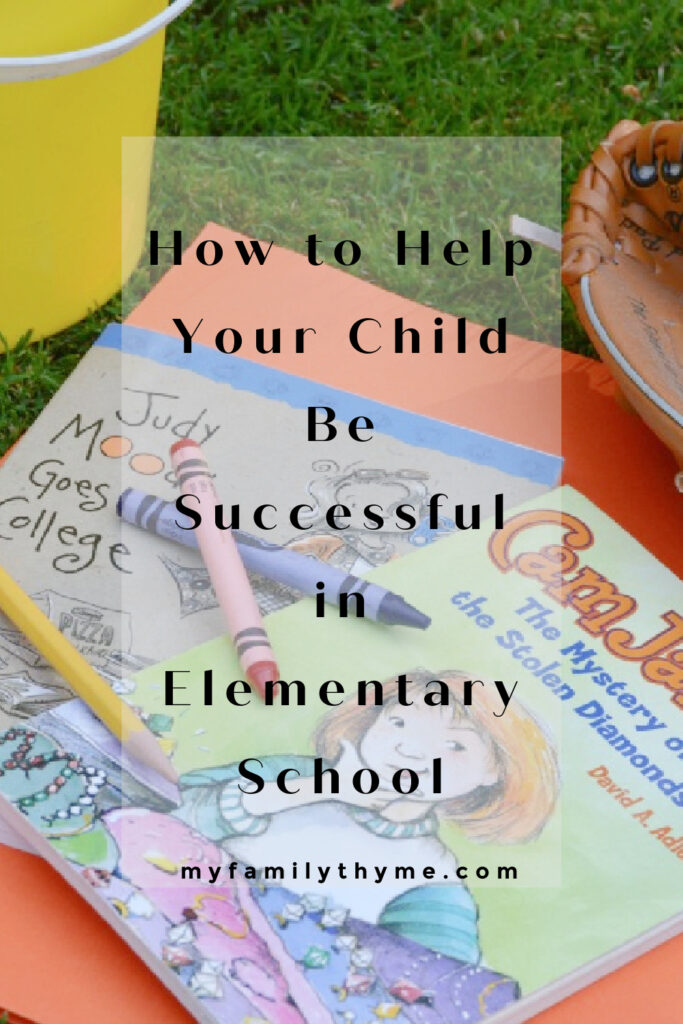How to Help Your Child Be Successful in Elementary School
Fifteen ways to help your child be successful in school as they grow throughout their elementary school years.
Raising my children is one of the hardest jobs I will ever have to do, but it is definitely the most important and rewarding. As parents, we look at our precious children with so much love, adoration, and hope. With our guidance, we want them to learn and grow into happy, healthy, and kind people.
As a long time elementary teacher, the question that many parents often ask me is, “How can I help my child at home?”
This is a broad, but thorough list of ways to help your child to be successful in elementary school. If you have specific questions or topics that you would like me to address, please feel free to reach out to me!
Many things that you do daily, at home will help your child as they grow throughout their elementary school years.
How to Help Your Child Be Successful in Elementary School
Spend Quality Time Each Day
- Talk and listen to your child. Be present with your child. Unplug from technology and distractions to take the time to have a conversation with your child everyday. Talk about school, relationships, everyday events, and subjects that interest him or her.
- Read. Set aside time to read together every day. Let your child read to you, but also read to your child. While listening to the intonation of your voice, your child will develop vocabulary and listening comprehension skills. Remember, children who are read to, will read.
Mistakes Are Opportunities to Learn
- Encourage independence and let your child make mistakes. Provide guidance and resist the urge to do tasks for them.
- Solve problems with your child, instead of for your child. Talk through the variety of possible solutions and results. Let your child experience the natural consequences of their choices and support them as they learn from their experiences.
Provide Routine and Consistency
- Structure, consistency, and routine are good for children. Clear expectations, family dinners, and bedtimes are all good things in a child’s life.
- Kindly, but firmly teach your child how to behave appropriately in different situations. For example, at school children use indoor voices in the classroom and outdoor voices at recess.
Model Organization
- Create a family calendar. Post important dates and events on a family calendar in a central location. Update it frequently to include activities and any upcoming due dates. The visual reminder of the schedule will provide clear organization, predictability, ease anxiety, and foster independence.
Let Them Be Bored
- Let your child be bored. Encourage creativity and imagination without entertaining your child.
- Don’t over-schedule your child. Make sure there are days when they can just come home, without planned activities.
Set Positive Expectations for School
- Reach out to your child’s teachers to establish and build a relationship. Teachers sincerely want to get to know you and want to help your child. These 5 Most Important Questions to Ask During a Parent-Teacher Conference may help you when meeting with your child’s teacher.
- Let your child know that education is important. Support your child by encouraging him or her to work hard at school and ask questions if they are unsure. Your teacher is there to help your child.
- Celebrate your child’s strengths and work on things that may be challenging. Keep expectations realistic and teach your child that perseverance will help them succeed.
Give Your Child Real Life Learning Experiences
- Give your child real-life learning experiences. Take him or her to libraries, parks, zoos, and museums. This will help him or her make connections to the world around them.
- Count everything and anything. As your child grows, give him or her real-life practice with the concepts of time and money. Give them opportunities to earn money
- Encourage your child to write. Create authentic purposes for writing. Have them write the grocery list or send a note to a family member. Print out pictures and let your child write the captions of the memories you made.
Some of these ideas are easier to implement than others. There were times when I definitely over-scheduled my children and then had to decide, do we give something up or teach the lesson to finish what we started? Parenting is not easy. Remember, you know your child best and what works best for your family.
Do you have any ideas that you would add to this list? I would love to hear from you!
Thank you so much for visiting today! I would love to connect with you on Facebook, Instagram, Pinterest, or here on the blog!








I would add volunteering. I feel empathy, kindness and helping others imprint on children and add a layer of depth, compassion and maturity.
Yes, I completely agree, Mary Ann! Thank you for your insightful comment. 🙂
Playing and reading are absolutely my favorite things to do with my children, who are now 11 and 13
Thank you for your comment, Jennifer. It so wonderful to enjoy precious time with your children!